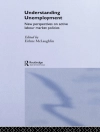Looking at Japan, traces crisis narratives across three decades and ten policy fields, with the aim of disentangling discursively manufactured crises from actual policy failures.
Mired in national crises since the early 1990s, Japan has had to respond to a rapid population decline; the Asian and global financial crises; the 2011 triple disaster of earthquake, tsunami, and the Fukushima nuclear meltdown; the COVID-19 pandemic; China’s economic rise; threats from North Korea; and massive public debt. In Crisis Narratives, Institutional Change, and the Transformation of the Japanese State, established specialists in a variety of areas use a coherent set of methodologies, aligning their sociological, public policy, and political science and international relations perspectives, to account for discrepancies between official rhetoric and policy practice and actual perceptions of decline and crisis in contemporary Japan. Each chapter focuses on a distinct policy field to gauge the effectiveness and the implications of political responses through an analysis of how crises are narrated and used to justify policy interventions. Transcending boundaries between issue areas and domestic and international politics, these essays paint a dynamic picture of the contested but changing nature of social, economic, and, ultimately political institutions as they constitute the transforming Japanese state.
Tabela de Conteúdo
Illustrations
Preface and Acknowledgments
Conventions
Introduction: Crisis Narratives, Institutional Change, and the Transformation of the Japanese State
Christian Wirth and Sebastian Maslow
Part I: Narrating Japan’s Social Crisis
1. Japan’s Melting Core: Social Frames and Political Crisis Narratives of Rising Inequalities
David Chiavacci
2. Authoritarian Populism in Everyday Life: The Discursive Politics of Demographic and Lifestyle Changes in Japan
Hiroko Takeda
3. Save Our Students? Shifting Subjects of Higher Education Crisis in Japan
Jeremy Breaden
Part II: Narrating Japan’s Political and Economic Crises
4. A Crisis of Democracy: Civil Society and Energy Politics Before and After the Fukushima Nuclear Disaster
Koichi Hasegawa
5. From Leader to Laggard? Crisis Narratives and Structural Reform in Japanese Science, Technology, and Innovation Policy
Iris Wieczorek
6. Contradiction and Discontent in Japan: Abenomics and the Failing Politics of Economic Reform
Saori Shibata
Part III: Narrating Japan’s National Security Crisis
7. ‘Failures’ and ‘Crises’ in Japanese Foreign Policy: The Democratic Party of Japan’s Rule 2009–2012
Paul O’Shea
8. From Ashes to New: The Delegitimization and Comeback of Japan’s Official Development Assistance
Raymond Yamamoto
9. A State of Crisis: North Korean Missiles, Abductions, and the Transformation of Postwar Japan
Ra Mason and Sebastian Maslow
10. ‘The World Is Marveling at Japan!’ Japanese Strategies to Avoid its ‘Crisis of Confidence’
Shogo Suzuki
Conclusion: Narrating Japan’s Crisis, Narrating Japan’s Rebirth
Sebastian Maslow and Christian Wirth
Contributors
Index
Sobre o autor
Sebastian Maslow is Senior Lecturer in International Relations at Sendai Shirayuri Women’s College in Japan. He is the coeditor (with Ra Mason and Paul O’Shea) of Risk State: Japan’s Foreign Policy in an Age of Uncertainty. Christian Wirth is Research Fellow at the German Institute for Global and Area Studies (GIGA) and Adjunct Research Fellow at the Griffith University Asia Institute. He is the author of Danger, Development and Legitimacy in East Asian Maritime Politics: Securing the Seas, Securing the State.












